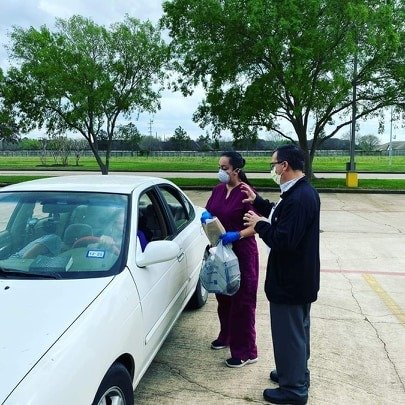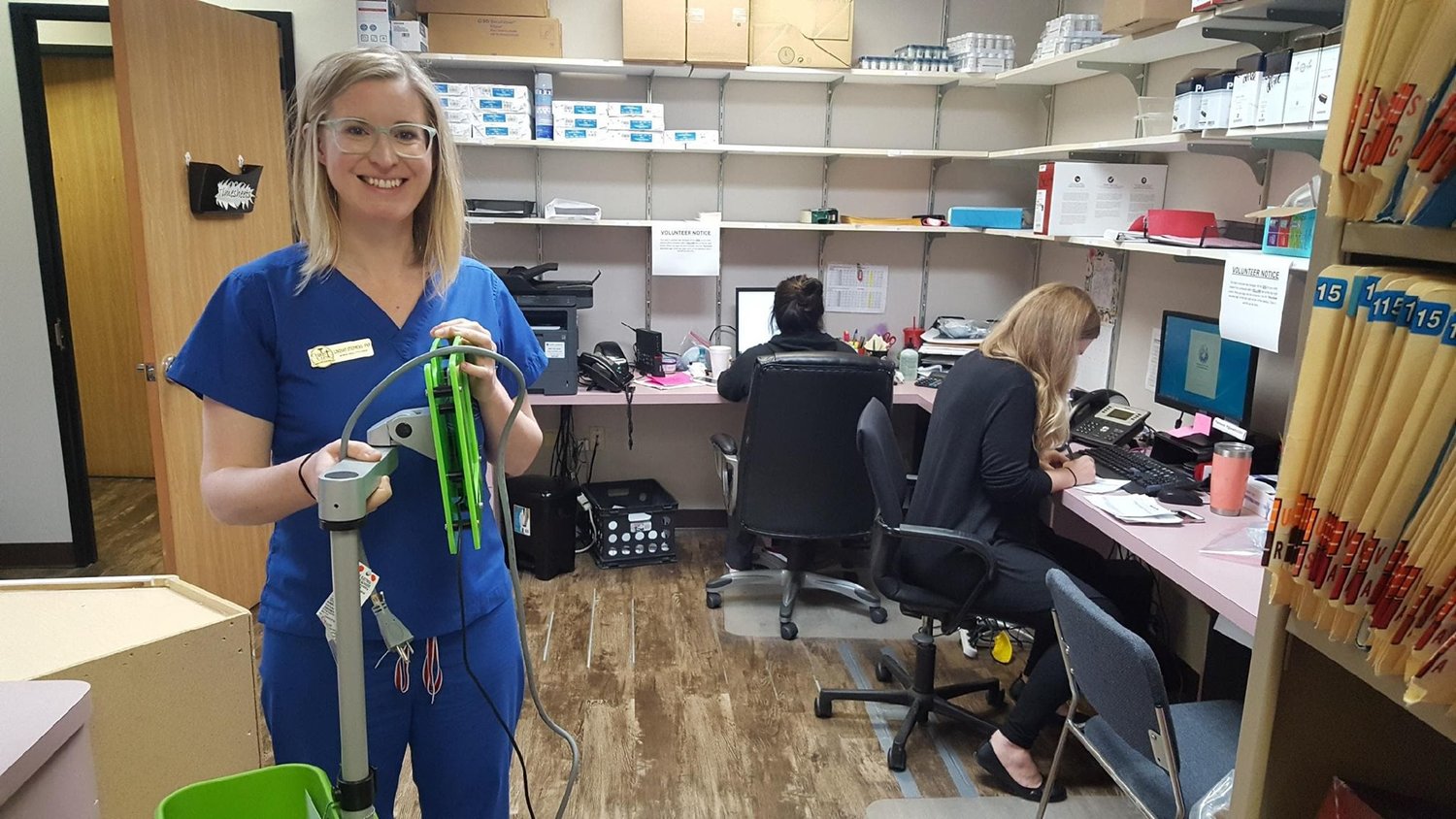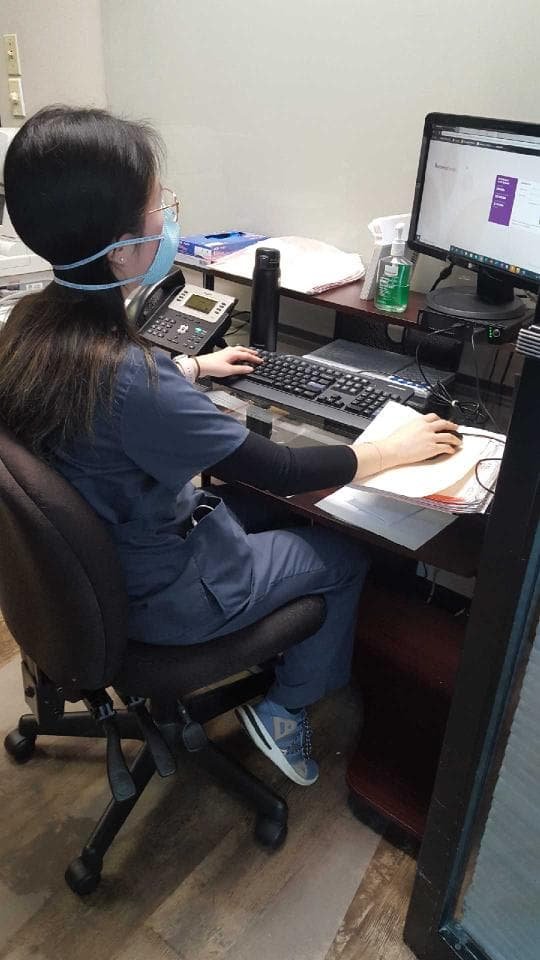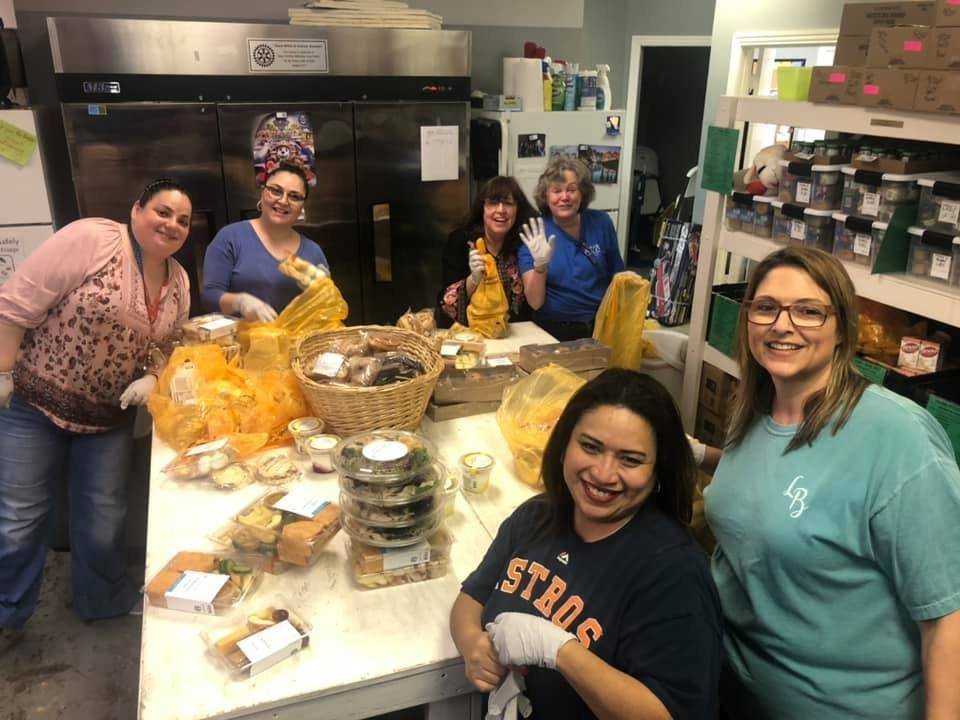Nonprofits feel the effects of pandemic
Nonprofits’ fundraising events have been cancelled in the face of the COVID-19 pandemic as Katy residents work on social distancing to minimize community spread. The lack of revenue and …
This item is available in full to subscribers.
Attention subscribers
To continue reading, you will need to either log in to your subscriber account, below, or purchase a new subscription.
Please log in to continue |
Nonprofits feel the effects of pandemic
Nonprofits’ fundraising events have been cancelled in the face of the COVID-19 pandemic as Katy residents work on social distancing to minimize community spread. The lack of revenue and adjustments in how nonprofits serve the community is extensive say representatives from a variety of charities serving Greater Katy.
“As we get more instructions regarding social distancing, we can’t help but wonder what that looks like for our folks who honestly often already feel unheard and unseen,” said Tina Hatcher, CEO of Hope Impacts – a local nonprofit that assists the homeless to rebuild their lives . “As people wipe out grocery shelves and items are hard to get how do we keep meeting needs?”
Nonprofits have had to make significant operational changes beyond in the wake of the novel coronavirus pandemic, representatives from several organizations said.
Operational Changes
Social distancing has caused a need for extra caution when nonprofits deliver services to clients, Katy Christian Ministries Executive Director Deysi Crespo said.
Community members turn to Crespo and her team at KCM for food assistance, counseling, tutoring, support groups and crisis intervention in the face of sexual assault and/or domestic violence.
“On Thurs. we had 23,000 pounds of food from the Houston Food Bank brought in and it was distributed in a five-hour period,” Crespo said. “Plus, an additional 4,000 pounds of food. So, you’re talking about 27,000 pounds of food in just one day.”
Volunteers are manning the food pantry in shifts, Crespo said. Some man the pantry on the inside while others take food to vehicles curbside so that contact with clients is minimized for both the safety of the volunteers and the clients, she said. Social services are still in operation, but much of their usual routine is happening by phone and all other in-person services – including tutoring and support groups – are cancelled until further notice.
The Susan G. Komen Foundation has begun teleworking to ensure that clients and staff – many of whom on both sides have immune systems compromised by current or former cancer treatment – can mitigate risks of exposure to the virus said Julie Voss, executive director of the foundation’s Houston branch. The foundation is also recommending nonessential screenings be postponed.
“We need to limit nonessential things in the healthcare world. Although Komen always encourages screenings, if you’re not symptomatic, you can wait for your safety and the safety of everybody involved,” Voss said.
Hope Impacts changed in-person services too, Hatcher said. The nonprofit is now screening the “street friends” that come to the door in need of help to make sure they don’t have signs of the disease. They’ve added education regarding COVID-19 to their services as well, she said.
Hope Impacts is also providing supplies for clients to practice hygiene more vigorously, Hatcher said.
“Due to the current recommendations we will not be having our outreach breakfast in April,” Hatcher said. “We were wanting to begin an outreach breakfast in May in Richmond/Rosenberg - but we may have to postpone that as we wait until this virus issue is figured out.”
Abi Fourie, founder of Clothed by Faith, said CBF is essentially shut down in the short term on the advice of the CDC and Texas Health and Human Services officials who expressed concern that COVID-19 might be spread through clothing donations and distribution. The charity provides like-new clothing to those in need throughout Greater Houston. Emergency orders for clothing are still being fulfilled, but in order to mitigate risk to the public and her volunteers, Fourie has scaled things back drastically.
“I’d say we’re shut,” Fourie said. “Our system is still open for emergency requests, but we’re not seeing any requests on that system right now.”
Fourie believes that the shutdown will be temporary, and she and staff are monitoring to see when they’ll be able to open back up. Right now, she said, the important thing is to protect people’s safety and health and the nonprofit will be back up and running as soon as Fourie and her staff can be certain clothing is safe to accept and to distribute once again.
About 70% of CBF’s clients are children, Fourie said. She believes that’s part of why the nonprofit isn’t seeing the emergency demand they might otherwise expect. Children are not in school so referrals by school counselors and Child Protective Services – whose clients are often identified in the school system – are not coming in, she said.
The caution is exacerbated in a healthcare situation, Christ Clinic Executive Director Lara Hamilton said. The low-cost clinic serves as many low-income Katy residents’ only source of healthcare and if only 10 or 11 staff are out due to quarantine, the clinic’s operations would be severely impacted. The clinic is practicing careful segregation of patients – about half of whom are in high-risk COVID-19 categories – and staff to ensure safety, Hamilton said.
“We are putting careful consideration into which patients and employees interact so that we can protect staff to maintain operations,” Hamilton said.
Separation requires screening from the start, Hamilton said. Each patient is screened through checkpoints and directed to the proper portion of the clinic so those exhibiting possible COVID-19 symptoms interact with as few people as possible. But additional resources continue to be necessary. The clinic is also not taking walk-ins at this time and is asking patients to call ahead for an appointment, Hamilton said.
“[Christ Clinic] needs funding to protect most vulnerable population and prevent community spread,” Hamilton said.
Finding Resources
Cancelling, modifying or postponing fundraisers are a serious challenge for nonprofits because it reduces predictability of income, Crespo said. These revenue-generating events create line items on budgets that allow for flexibility in services and staffing. Grants often come with restrictions that income from fundraising activities don’t have, she said. A loss or postponement of a significant fundraiser puts budgets and associated programs in jeopardy, she said.
COVID-19 event postponements include the Katy Bubble Run, a source of funding for five local nonprofits, Hatcher said. The event has been postponed to an as-yet-undetermined date this fall, Hatcher said. Christ Clinic, Compassion Katy, Hope Impacts, Katy Christian Ministries and The Ballard House all raise money through the fun run.
“[The Katy Bubble Run] Is one of the means that pays for needed staffing,” Crespo said. “It brings in funding for unmet basic needs for families.”
Christ Clinic has immediate needs for funding, Hamilton said. The nonprofit is switching to remote services as much as possible and would like to implement telemedicine and more phone screening options. There is a cost to make that happen, she said.
Like hospitals, the clinic needs masks, hand sanitizer and other medical supplies that are necessary to help patients, Hamilton said.
“Any way that people have to financially support us at this moment would be appreciated and would definitely be a benefit for our entire community,” Hamilton said.
Fourie said she hopes clothing donors will hold onto their donations and be ready to donate for when clients who weren’t identified during the social distancing period of the pandemic come forth in what she expects to come as a large wave.
“I think the biggest message we can get out to the public right now is – we need your donations, please be sure to keep them on hand.” Fourie said. “Keep hold of your stuff and we’re going to need it.”
Voss said Komen, like many larger charities, is able to keep some emergency funding on hand, but she is concerned that the timeframe for the current COVID-19 situation may exceed reserves.
Crespo and Hatcher said their organizations are in serious need of donations of food and other in-kind items and will likely see demand increase after social distancing as well due to the economic impacts of the situation.
“We have a huge need of nonperishable food items and personal care items,” Crespo said.Fourie and Hatcher agreed with their peers at Christ Clinic and KCM in that there is a need to support services in the present and help to prepare for the future. Each of the nonprofits predicts a wave of additional need for assistance after social isolation is completed, similar to what they experienced immediately following Hurricane Harvey.
“I would emphasize that as fundraisers are being cancelled and community needs are increasing the nonprofits need local recurring donations more than ever to keep serving our community,” Hatcher said.
Keywords
The Arc of Katy, The Ballard House, Christ Clinic, Clothed by Faith, Compassion Katy, Easter Seals Greater Houston, Hope Impacts, Katy Christian Ministries, Susan G. Komen Houston, COVID-19, Houston Food Bank, Deysi Crespo, Tina Hatcher, Lara Hamilton, Katy














